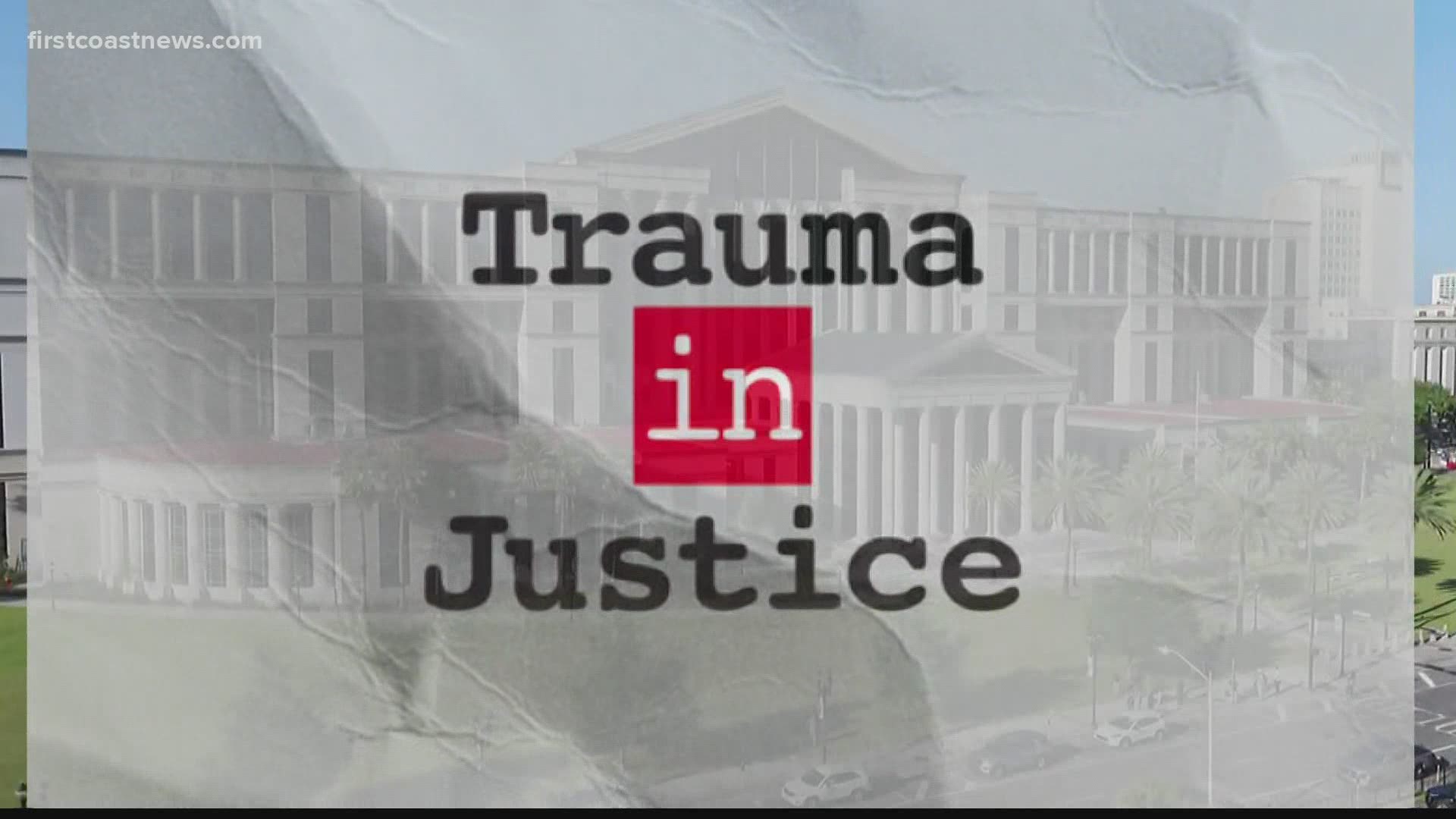JACKSONVILLE, Fla. — The criminal justice system has no shortage of trauma, whether it’s the suffering of victims or the childhood experiences of damaged defendants.
But the trauma of lawyers working in that system often isn’t considered.
“There's no preparation for how to how to negotiate those things, at any point, really, in a healthy way,” says Tallahassee-based criminal defense attorney Alison DeBelder. “Things that -- once you've seen them, once you've heard them, once you know about them -- you can't un-ring that bell.”
DeBelder and Chris Moser, a lawyer and director of the pre-law program at Flagler College, wanted to explore a topic they say gets scant attention – and for which young lawyers get zero preparation.
“I haven’t encountered anyone that says law schools are adequately addressing the impact or dealing with direct or vicarious trauma,” says Moser.
The “Trauma inJustice” podcast includes interviews with some of the biggest names in Northeast Florida’s criminal defense world, talking candidly about the emotional and sometimes physical hazards of working in the criminal justice system. And it explores a range of traumatic experiences, including those that reoccur continuously, over decades.
“I am constantly mistaken for a defendant," attorney Regina Wright says in the podcast’s most recent episode. "And, I’m just like – OK, I’m a lawyer." She adds, "I think that as a Black person, you're just used to it.”
Wright also talks about the experience of working in a system where racial bias is inherent, offering examples of the dramatically different plea deals offered to her Black and white clients.
“I think everybody in this system knows that Black people are treated differently than white people,” she says.
Federal Public Defender Waffa Hanania echoes that and says working in a system riven by inequity inflicts its own gradual trauma.
“There's so much misery in the criminal justice system,” she says. “And it all gets intensified when you get to capital cases … It’s the stress of just not wanting to screw up, for it to not be my fault that somebody has just been sentenced to death. And that's just a lot to deal with.”
Lewis Buzzell, who works with the state Public Defender’s Office in Jacksonville, recalls getting punched in the face by a client unhappy with a plea deal. (He laughingly recalls deadpanning to the judge, “He's not going to take the deal.”) But he says physical harm pales in comparison to the psychic damage of trying death penalty cases, where your client faces the ultimate punishment.
Buzzell, who quit the Public Defender’s Office for a few years following the election of Matt Shirk, says, “About 4 to 5 to 6 months after I quit doing that, it dawned on me one day: ‘I just quit hitting myself in the head with a hammer.’ It felt really good,” he laughs. “I knew it was stressful, but I didn’t realize how stressful it was until I quit doing it.”
Attorney Katherine Hinchey talks about dealing with clients who masturbate in front of her -- known as "gunning" -- a problem she says is now so common it's become almost rote.
The "Trauma in Justice" podcast has been well received by the legal community. Some law professors saying they plan to share segments in their classes, and it qualifies for Continuing Legal Education credits Florida Bar attorneys.
But it's also popular among non-lawyers and ordinary true crime fans. DeBelder thinks it’s because, for people outside of the legal profession, the subject is brand new.
“It’s horrible. It can be frightening. There's gallows humor surrounding it,” she says. “But it’s certainly fascinating.”
The Trauma injustice podcast is available on all audio platforms on their website.

